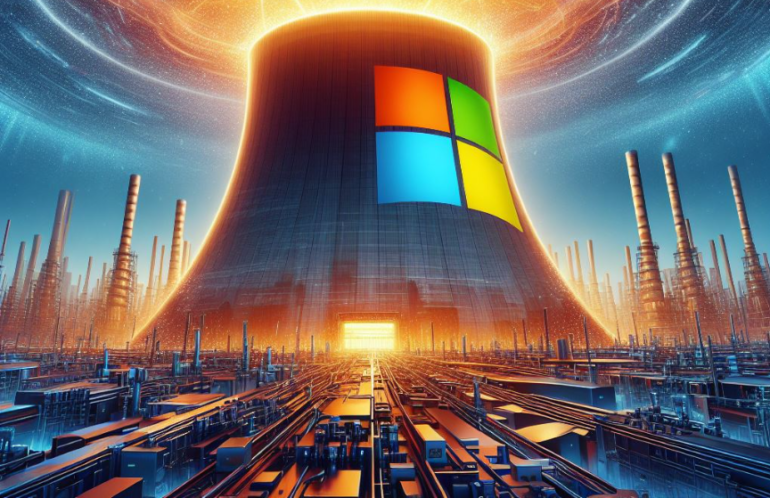TL;DR:
- Microsoft is training an AI to expedite regulatory approvals for next-gen nuclear reactors.
- The aim is to power Microsoft’s data centers, supporting generative AI applications.
- Microsoft invested $13 billion in OpenAI, built a supercomputer for AI training, and relies on its data centers for processing power.
- Nuclear energy, particularly from SMRs, is seen as a sustainable solution for increased electricity demands.
- Regulatory approval for SMRs is expensive and complex, with NuScale being the only successful example.
- Microsoft collaborates with Terra Praxis to train a generative AI for document creation.
- The AI model works under supervision, producing highly structured documents for approval.
- It could potentially reduce human labor hours for SMR approval by 90%, though results are yet to be determined.
Main AI News:
Microsoft is spearheading an initiative to harness the power of artificial intelligence (AI) in streamlining the approval process for next-generation nuclear reactors. This ambitious endeavor seeks to expedite the authorization of small modular reactors (SMRs) by regulatory bodies, ultimately serving the purpose of supplying Microsoft’s data centers with the energy required to operate cutting-edge generative AI systems.
As of November 2023, the pervasive use of OpenAI’s ChatGPT had garnered a staggering 100 million weekly users, creating a substantial demand for computational resources to cater to their diverse inquiries. Microsoft, recognizing the pivotal role it plays in the AI ecosystem, has not only invested a substantial $13 billion in OpenAI but has also engineered a colossal supercomputer dedicated to training OpenAI’s generative AIs. Furthermore, Microsoft’s data centers stand as a cornerstone, providing the computational prowess indispensable for the functioning of these AI models.
Microsoft’s vision extends beyond its involvement in AI infrastructure; it harbors a keen interest in the deployment of nuclear energy, specifically hinging on the utilization of small modular reactors (SMRs) to meet the escalating electricity requirements driven by generative AI operations. Unlike conventional energy sources such as coal or natural gas, nuclear power is environmentally friendly, producing negligible carbon emissions. Moreover, while solar and wind energy sources are carbon-neutral, they are subject to climatic conditions, whereas nuclear reactors can generate electricity reliably under any weather conditions.
However, the journey to operationalizing SMRs in the United States is riddled with challenges. Regulatory approval is a complex and costly process, exemplified by NuScale, the sole company to achieve it, having expended a staggering $500 million and submitted an application comprising a daunting 12,000 pages, accompanied by over 2 million pages of supporting documents.
In an effort to streamline this intricate process, Microsoft has forged a partnership with Terra Praxis, a nonprofit organization championing decarbonization. Together, they are training a generative AI model with the specific purpose of generating the requisite documentation for obtaining regulatory approval for new nuclear reactors.
It is worth noting that the AI operates under close supervision and does not autonomously generate the data required for these documents. Eric Ingersoll, co-CEO of Terra Praxis, elucidated, “What we’re doing here is training a large language model on very specific highly structured documents to produce another highly structured document almost identical to previous documents.”
While the exact impact of this AI-driven approach remains uncertain, Eric Ingersoll estimates that it could reduce the human labor hours necessary for obtaining approval for a new SMR by a staggering 90%. Microsoft, ever-optimistic in its endeavors, eagerly anticipates the potential for generative AI to accelerate its vision of embracing nuclear energy as a cornerstone of sustainability. Michelle Patron, Microsoft’s senior director of sustainability policy, affirmed, “We’re really excited about the game-changing potential for AI in this space.”
Conclusion:
Microsoft’s strategic investment in AI-driven solutions for nuclear reactor approvals demonstrates its commitment to meeting the growing energy demands of generative AI applications. By streamlining the complex regulatory process, Microsoft seeks to position itself as a pioneer in sustainable energy solutions, potentially influencing the broader market’s adoption of small modular reactors (SMRs) and AI-driven efficiency improvements in regulatory processes.

